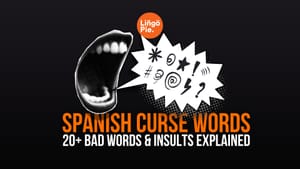If you’ve spent time around Dominicans online, at a party, or on the streets of Santo Domingo, you’ve probably heard slang words fly by that didn’t sound like the Spanish you learned in class. That’s because Dominican Spanish has a rhythm and style all its own, with quirky phrases that change fast and travel even faster through music and social media.
Mastering these slang words isn’t just about understanding conversations—it’s about feeling connected to the way people actually speak. Once you pick them up, you’ll start catching jokes, teasing friends naturally, and sounding way more local. And just like New Zealand slang, Dominican slang has its own rhythm, humor, and expressions that you won’t find in textbooks.
With that in mind, I thought it would be interesting to break down 25 classic Dominican slang words and phrases that make up our everyday language. I'll give you my personal take on each one, plus some “Spanish-to-Spanish” translation tips for those times when even other Spanish speakers can’t keep up.
- 17 Venezuelan Slang Terms You Need In Your Vocabulary
- 24 Easy Honduran Slang You Should Learn From The Locals
- 26+ Easy Guatemalan Slang Every Expat Should Know

Where Does Dominican Spanish Come From?
Dominican Spanish is a mix of different influences that have come together over time. It started with the Spanish colonizers in the 1500s, who brought the Spanish language to the island. But it didn’t stop there. The Taino people, the island’s original inhabitants, also contributed to our vocabulary with words like hamaca (hammock) and canoa (canoe).
Then there’s the African influence. During the colonial period, many Africans were brought to the island, and their language and culture impacted the way we speak today. Over time, Dominican Spanish continued to evolve, picking up influences from other Caribbean countries and even the U.S. This is why our slang and expressions can be different from what you’d hear in Spain or other Spanish-speaking countries.
So, when you hear words like “vaina” or “concho,” know that these expressions have been passed down through generations of Dominicans, shaped by all the cultures that have crossed paths here.
25 Dominican Slang Terms You Gotta Know
Alright, let me take you into our world with a list of Dominican slang terms that will not only give you a taste of our everyday life but might even make you scratch your head and go, “Wait, what?” Here’s a little guide from a Dominican girl trying to help the world understand our lingo.
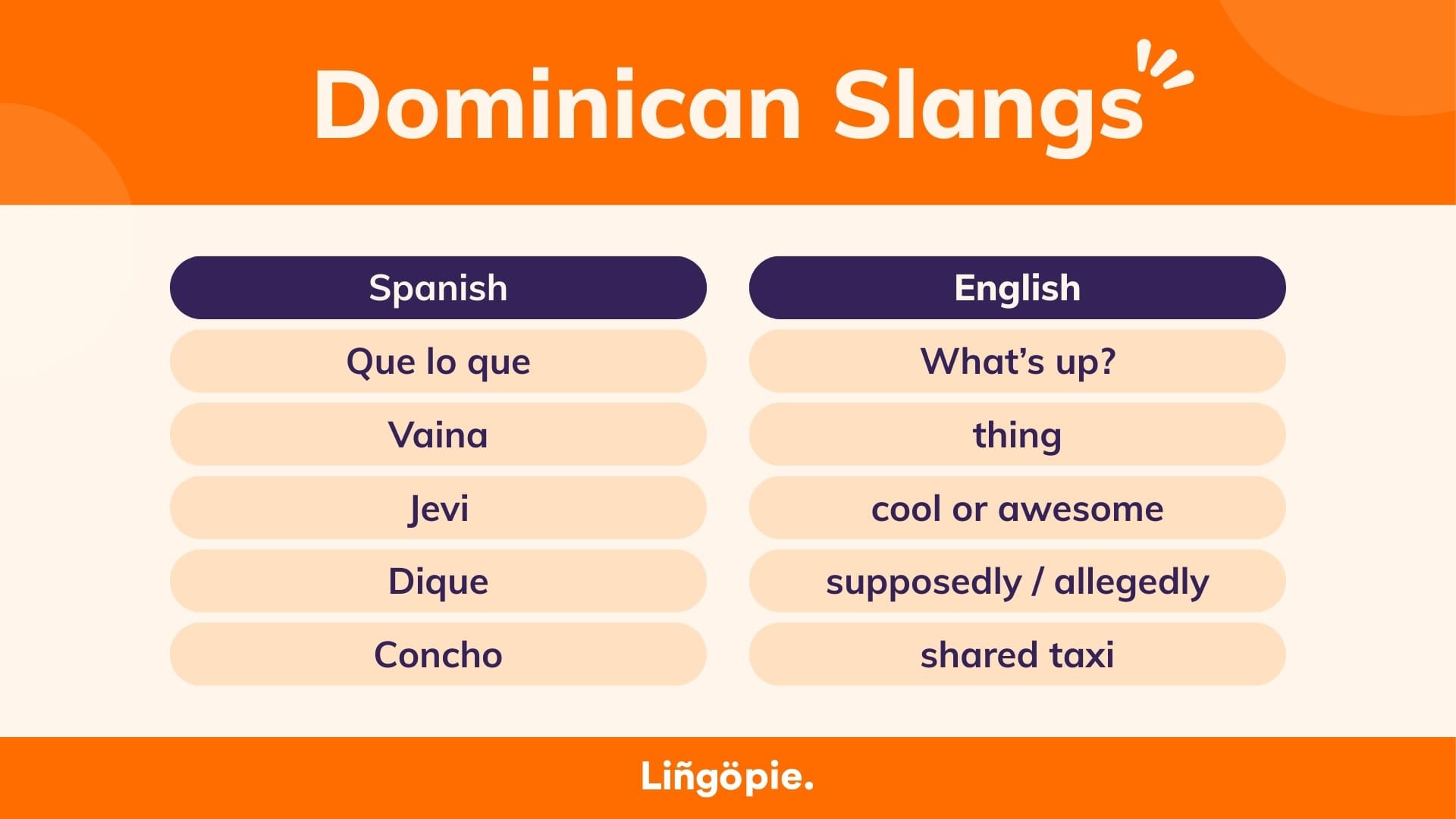
1. Que lo que
This one’s like our go-to “What’s up?” or “What’s going on?” It’s quite common, especially in informal settings.
Example: “Que lo que, mi gente?” (What’s up, my people?)
2. Vaina
Let me tell you, “vaina” is a lifesaver. It means “thing” or “stuff,” and we use it for pretty much everything! I’ve had to translate this one a lot for friends who don’t get that it’s just… everything!
Example: “Pásame esa vaina.” (Pass me that thing.)
3. Jevi
If something is cool or awesome, we say it’s “jevi.” But that term is not reserved for things. If a person is nice or easygoing, we say he or she is "jevi."
Example: “Esa fiesta estuvo jevi.” (That party was awesome.)
4. Dique
This one’s tricky—it’s like “supposedly” or “allegedly,” but with a bit of sarcasm or doubt. I use it all the time when I’m not 100% sure about something.
Example: “Dique él va a llegar temprano.” (Supposedly, he’s going to arrive early.)
5. Concho
Our local term for a shared taxi, which is like an adventure every time you get in. Try explaining that to someone who’s used to Uber!
Example: “Voy a tomar un concho para ir a la tienda.” (I’m taking a shared taxi to the store.)
6. Jumo
If you’ve had a bit too much to drink, you’re in the “jumo” territory. We use this term to describe someone who is REALLY drunk.
Example: “Ayer tenía un jumo después de la fiesta.” (I was buzzed after the party last night.)
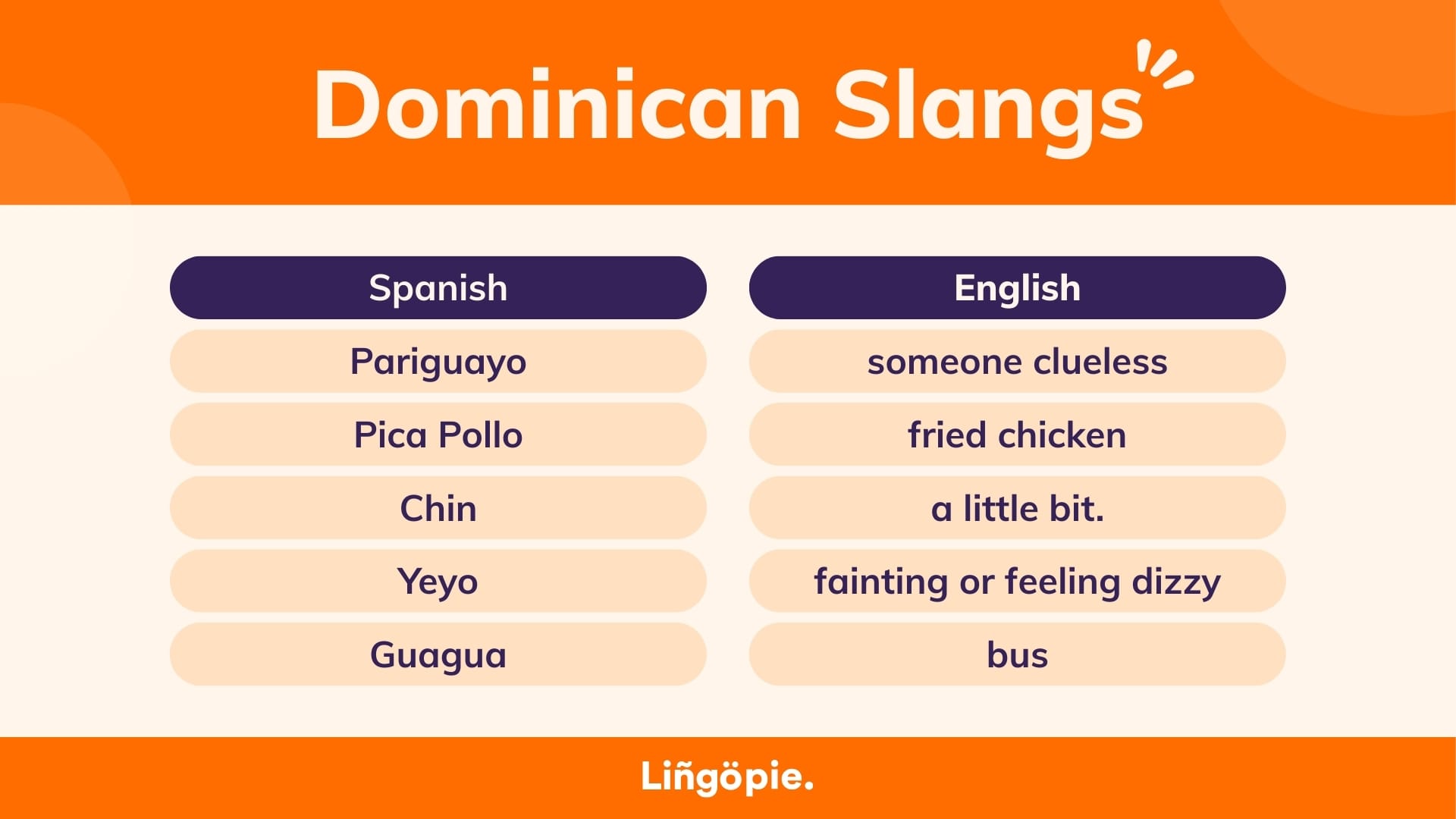
7. Pariguayo
A pariguayo is someone who’s not “in the know”—like, a bit clueless or too timid to have fun.
Example: “No seas un pariguayo, ven a la fiesta.” (Don’t be a killjoy, come to the party.)
8. Pica Pollo
It’s fried chicken, Dominican-style! But it’s not just any chicken. It is tasty and well-seasoned, perfect for those moments when we’re not into cooking and want to solve the meal with something quick.
Example: “Vamos a comprar un pica pollo.” (Let’s go buy some fried chicken.)
9. Chin
This means "a little bit." You can say, 'Dame un chin' (Give me a little bit), whether it’s for food, a drink, or anything else."
Example: “¿Quieres más?” “Dame un chin.” (Do you want more? Give me a little.)
10. Yeyo
This one is funny! “Yeyo” means fainting or feeling dizzy, usually in a dramatic way. My mom says this when she feels overwhelmed.
Example: “Me va a dar un yeyo con esta noticia.” (I’m about to faint from this news.)
11. Guagua
If you’re hopping on public transportation here, you’re taking a “guagua”—which is just a bus, but calling it a “bus” doesn’t feel right.
Example: “Voy a coger la guagua para el trabajo.” (I’m taking the bus to work.)
12. Lío
This is our word for “trouble” or “mess.” It can be used in so many ways, and it’s perfect for all those times you’re just in a sticky situation.
Example: “¿Qué lío es este?” (What kind of mess is this?)
13. Jarto
Means “fed up” or “full,” especially after a big meal! If someone says they’re “jarto,” don’t offer them more food.
Example: “Estoy jarta de tanto arroz.” (I’m so full from all that rice.)
14. Tiguere
A tiguere is a street-smart guy who knows how to navigate any situation. If you call someone a tiguere, it’s a mix of admiration and caution.
Example: “Ese tipo es un tiguere, siempre consigue lo que quiere.” (That guy is street-smart, he always gets what he wants.)
15. Fuñir
This is “to annoy” or “to bother.” If someone’s getting on your nerves, you can say they’re “fuñendo.”
Example: “No me fuñas, por favor.” (Don’t annoy me, please.)
16. Pajón
“Pajón” is what we call a big, curly hairdo, especially after washing it and letting it go natural.
Example: “Hoy tengo un pajón tremendo.” (Today, I have huge curly hair.)
17. Bobo
If there’s a problem or something complicated, we call it a “bobo.” It’s a fun way to say, “Ugh, what a hassle!”
Example: “Hay un bobo con el carro.” (There’s an issue with the car.)
18. Palomo
A “palomo” is someone who’s too naive or innocent. Like, they’re easily fooled or too nice for their own good.
Example: “Ese es un palomo, siempre le creen todo.” (He’s so naive, they always believe everything he says.)
19. Bacano
“Bacano” is the ultimate word for something or someone that’s super cool, fun, or awesome. If you’re really vibing about something, you’ll say it’s “bacano.”
Example: “Esa película estuvo bacana.” (That movie was awesome.)
20. Tato
This means “okay” or “it’s fine.” My Spanish friends always laugh when they hear it because it sounds so casual.
Example:
Friend: "Vamos a la playa este fin de semana, ¿te animas?" (Let’s go to the beach this weekend, are you in?)
You: "¡Tato! Vamos." (Sounds good! Let’s go.)
21. Muela
This is “smooth talk” or “flirting.” If someone’s trying to charm you, they’re giving you “muela.”
Example: “No te dejes llevar por su muela.” (Don’t fall for his smooth talk.)
22. Ñoñería
A “ñoño” is someone who’s overly sensitive or clingy, and “ñoñería” is that overly dramatic, childish attitude.
Example: “Deja la ñoñería y sal con nosotros.” (Stop being such a baby and come with us.)
23. Popi/Wawawa
These terms are opposites: a “popi” is someone posh or upper-class, while a “wawawa” is more street or working class.
Example: “Él es un popi, siempre con ropa de marca.” (He’s so posh, always wearing brand clothes.)
24. Encojona’o/Encojona’a
This one's about being really fired up or mad about something.
Example: “Estoy encojona’a con él porque me dejó plantada.” (I’m mad at him because he stood me up.)
25. Mangú
Finally, this might not be slang, but I can’t leave out “mangú,” which is pure Dominican pride! It’s our breakfast staple, mashed plantains served with love.
Example: “Hoy me desayuno con mangú.” (Today I’m having mangú for breakfast.)
Dominican Expressions & Filler Phrases You’ll Hear All the Time
If you really want to sound Dominican (and not just like someone who memorized a few slang words), pay attention to the little filler phrases and expressions that people use in everyday conversation.
Oye — Hey / Listen
A classic conversation starter or way to get someone’s attention. You’ll hear it all day long: “Oye, tú supiste lo que pasó?”
¿Tú ves? — You see? / You know?
Used to confirm a point or draw someone in: “Ese tipo siempre llega tarde, ¿tú ves?”
Pa’ que lo sepas — Just so you know
Adds a little emphasis or attitude to a statement: “Yo no voy pa’ esa fiesta, pa’ que lo sepas.”
Mi madre — Oh my gosh / Oh man
An exclamation of surprise, annoyance, or even admiration: “¡Mi madre, qué calor hace hoy!”
Eh — Filler sound (like "uh" or "you know")
Dominicans use “eh” at the end of statements all the time for rhythm or emphasis: “Eso está caro, eh.”
Coño — A strong but super common exclamation
It can express frustration, surprise, or even happiness—depends on tone! Just be aware this is a bit vulgar, though it’s used very casually in the DR: “¡Coño, qué suerte tuve!”
Ta’ to’ (short for Está todo bien) — It’s all good / No worries
Super casual and relaxed way to say everything’s fine: “Nos vemos mañana.” — “Ta’ to’.”
Tip: You’ll notice that Dominicans often drop letters and shorten words when speaking fast (like ta’ to’ instead of está todo). Pay attention to this flow when listening to native speakers—it’ll help your Spanish sound more natural.
Learn More Dominican Slang With Lingopie
So there you have it! We’ve covered some of the most popular Dominican slang words you should know. From “que lo que” to “encojona’o,” these expressions are essential for understanding everyday Dominican conversations and adding flavor to your Spanish skills.
But of course, learning slang is just the tip of the iceberg. To truly master the language and get a feel for how these words fit into real conversations, I recommend checking out Lingopie. It’s an innovative platform that allows you to learn Spanish by watching Spanish movies and TV shows in Spanish — you'll hear these phrases in context! Plus, you'll be able to practice at your own pace.
FAQ About Dominican Spanish & Dominican Slang
What makes Dominican Spanish different?
Dominican Spanish has its own unique rhythm, pronunciation, and slang, shaped by Taino, African, and Spanish influences. You'll notice fast speech, dropped word endings, and lots of local expressions that may not be understood elsewhere. It’s very distinct from European or Latin American Spanish.
Is Dominican slang hard to understand?
It can be, especially for beginners or Spanish speakers from other countries. Many Dominican slang words have meanings that change depending on tone or context, and locals often speak very quickly. But once you learn the key phrases, it becomes much easier to follow.
What does "vaina" mean in Dominican slang?
"Vaina" is one of the most versatile Dominican slang words. It can mean "thing," "stuff," or almost anything, depending on how it's used. It’s a catch-all word that Dominicans use constantly in casual conversation.
What are some common Dominican greetings?
Popular greetings include "¿Qué lo que?" (What's up?), "Todo bien" (All good), and "Dímelo" (Tell me / What's going on?). These informal phrases are very common among friends and younger Dominicans.
Is Dominican Spanish used in music and social media?
Yes, Dominican Spanish (especially its slang) is a big part of local music like dembow, reggaetón, and bachata. You’ll also hear slang words in Dominican TikTok videos, Instagram captions, and YouTube content, helping them spread quickly to younger audiences.


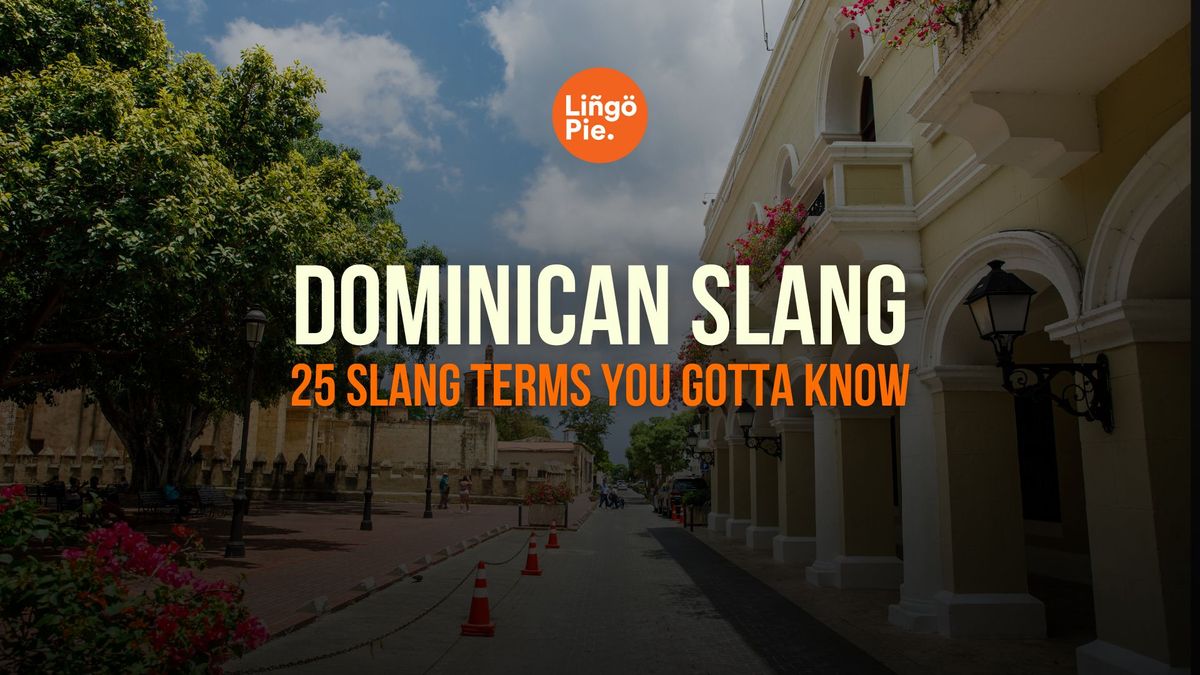

![50+ Easy Spanish Summer Words For Beginners [Guide]](/blog/content/images/2025/06/Spanish-Summer-Words.jpg)
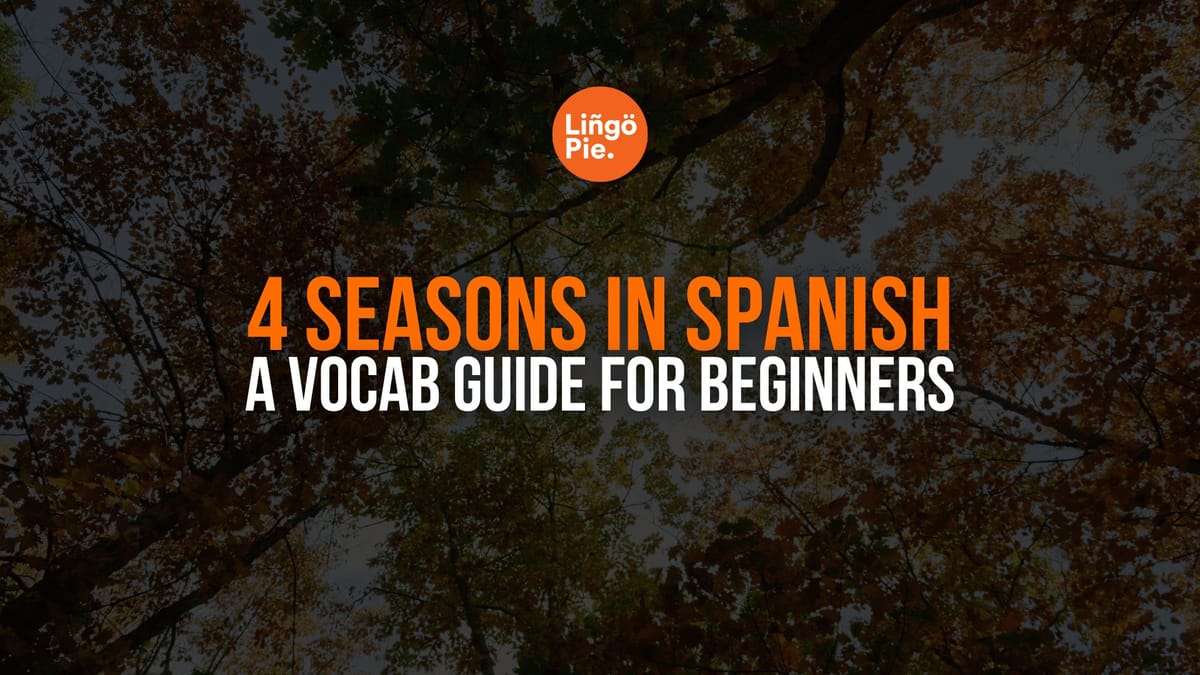
![19 Best Spanish Series For Learning Spanish Fast [2026]](/blog/content/images/size/w300/2025/04/best-shows-to-watch-to-learn-spanish.jpg)
![How to Learn Spanish with News in Easy Spanish [Guide]](/blog/content/images/size/w300/2024/12/How-to-Learn-Spanish-with-News-in-Easy-Spanish.jpg)
![80 Spanish Love Words Every Romantic Should Know [Guide]](/blog/content/images/size/w300/2025/10/spanish-love-words.jpg)
